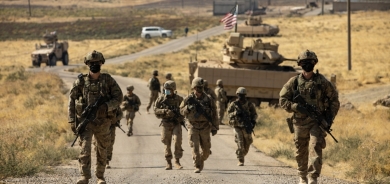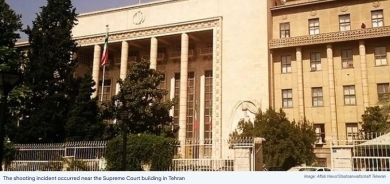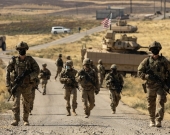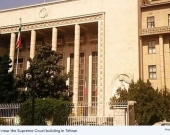As Kurdistan Battles Baghdad Over Oil Deal, Where is Kurdish Voice in Washington?

With the Kurdistan Regional Government (KRG) locked in one of the most important battles of its existence with Baghdad -- over the right to independent oil exports -- a nagging question looms: Who is lobbying on behalf of the Kurds where it counts most, in Washington.
The answer is: No one.
The seat of the KRG representative in the United States has remained cold for more than a year, without any official explanation. Political insiders blame the vacancy on an age-old rivalry between the Kurdistan Democratic Party (KDP) and Patriotic Union of Kurdistan (PUK).
Without a person with credibility, charisma and cash to grease-the-hands-that-change-the- minds in Washington, the Kurds have shot themselves in the foot in their row with Baghdad. Instead of leaping into the diplomatic battleground, they are limping in. Instead of a Kurdish public relations blitzkrieg in Washington, there is a deafening silence.
No Iraqi Kurd needs to learn why it matters to have American support in any battle with Baghdad, or with anyone else. Who doesn’t know that, without American backing for Kurdish autonomy in 1991, today the Kurdistan Region might not have been? Without that, this very winter hordes of shivering Kurds might once again have been huddled behind the borders of neighboring countries, pleading to get in.
Instead, from Erbil the Kurds control and patrol their own borders today. Again this winter, they opened their doors to fellow Kurds from Syria, and were thanked by the UN. In Erbil on Tuesday, UN Secretary General Ban Ki-moon expressed his gratitude to the KRG for its “generosity” toward tens of thousands of Syrian refugees.
Now, the Kurds need America again, this time in a war to control and sell their own oil and gas. Kurdish prosperity and security both depend on this deal. Kurdistan’s future depends on it.
It is not an exaggeration to say that a successful oil deal would put Iraqi Kurds on the road to independence. To an extent, it would give them self-sufficiency, and the choice to stay or leave the federation. That is why Baghdad is fighting tooth and claw to block this deal. It is not easy for Baghdad to let loose the goose that lays the golden eggs.
In its opposition, Baghdad has Uncle Sam on its side, shaking an admonishing finger at the Kurds. Baghdad has an able ambassador in Washington, while the Kurds have no one.
It is no secret that nothing gets done in Washington without the big lobbies; and that almost anything can be done by throwing enough cash into it.
Also, it is no secret that members of the US Congress and Senate often need all the help they can get to understand the world beyond America’s big borders. It is doubtful that most members of the US Congress and Senate even know what the KRG is. Who is there to help them find Kurdistan on the map?
How important is lobbying in Washington?
Ask The American Israeli Public Affairs Committee (AIPAC) why it spends tens of millions of dollars every year. Ever wonder why Uncle Sam has such a blind spot for Israel?
Ask the mining, defense and oil industries why they run the largest lobbies on The Hill. When was the last time the US Congress or Senate voted against these industries?
There is a name for how Washington functions: It’s called “Buying Influence.” This is the business of paying to change minds. Call it what you will, but that’s how it works.
How important is it to be heard in Washington?
Ask the Arabs why they have their own lobby.
Or even ask Baghdad why it chose Lukman Faily as its ambassador.
The Iraqi Embassy website boasts his credentials to include, “a familiarity with Anglo-American traditions and institutions.” The UK-educated diplomat holds degrees in computer science and mathematics, an MBA and a post-graduate degree. He worked for 10 years in senior positions with a company that is now part of IT giant Hewlett Packard. He was also ambassador to Japan. And, he speaks Kurdish.
Was it not the successful public relations and media campaigns that Kurdish groups and leaders ran in Europe and the United States in the 1990s that garnered world support for the Kurds, during their last wars with Saddam Hussein.
Without that, would Western countries have opened doors to so many Kurdish refugees, at a time when Kurds fleeing from Saddam had to choose between Iraq and a hard place?
Ever wonder why the United States did not lift a finger after Saddam’s 1988 gassing of 5,000 innocent Kurds in Halabja? An important part of the reason was that the Kurds had no one speaking on their behalf in Washington.
“There was nobody standing up for them, almost nobody,” recalled Peter Galbraith, a former US diplomat and ex-advisor to the KRG, in a 2007 published article.
Of course, it was US foreign policy then to support Saddam against Iran. Without any Kurds screaming on Capitol Hill about Saddam’s murderous machinery, without anyone going on CNN, it was easy for the US administration to ignore what it did not want to see.
If the KRG really does have a legitimate right to independent oil exports, who is making that case before American policy makers? Who is explaining it on CNN or to the Washington Post?
The present fight over oil is not the only one for which the Kurds need the Americans on their side.
The issue of Kurdish independence -- the elephant in the room that no one in the KRG wants to talk about -- will eventually have to be resolved. It does not take a crystal ball to predict that Iraq will be trapped in violence, bloodshed and instability for a long time. Even if it does not want to secede, a stable and prosperous KRG can remain chained to a crumbling federation only for so long.
Kurdish independence and independent Kurdish energy exports both remain anathema to American policy. That is all the more reason to have someone in Washington working full time, all the time, passionately promoting the Kurdish cause, whenever and wherever it counts.
Until he was pulled out and returned to a senior government post in Kurdistan about a year-and-half ago, representing the KRG in Washington was the job of Qubad Talabani, the son of Iraqi President Jalal Talabani.
By all accounts Qubad, who was raised and educated in the United Kingdom, was an able operator and articulate voice of the Kurds, someone who began learning the ropes in Washington in 2000.
A year after he officially became the KRG representative in 2006, an article in USA Today wrote that, in Washington, “The Kurds are the most aggressive of the Iraqi religious and ethnic factions jockeying for influence over US policy.”
It noted: “The Kurds have spent nearly $3 million on lobbying and public relations efforts here since 2003, including paying powerhouse Republican lobbying firm Barbour Griffith & Rogers nearly $1.7 million, according to Justice Department records.”
It reported that: “Barbour Griffith lobbyists met with Bush administration officials on the Kurds behalf a dozen times between December 2005 and November 2006. They met with Ross Wilson, the U.S. ambassador to Turkey, and President Bushs deputy national security adviser for Iraq, Meghan OSullivan. Among other issues, the Kurds want U.S. support for their continued semi-autonomous status and their drive to make the oil-rich city of Kirkuk part of their territory.”
That was then.
In Washington, this is the Kurdish voice today:__________?
Once, on the battlefronts, the cost of the KDP-PUK power struggle was measured in lives.
Today, it is measured in countless other ways.
RUDAW














